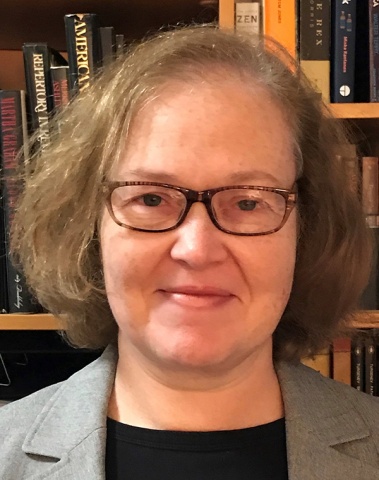McLaughlin credits the Ford School for helping her develop the problem-solving, communication skills, and quantitative analysis necessary for managing crises at the Fed.

Susan McLaughlin
First job out of Ford School: Associate, Banking Studies, Bank Supervisions, Federal Reserve Bank of New York
Throughout nearly three decades at the Federal Reserve Bank of New York, Susan McLaughlin (MPP/MBA '93) has worked a wide range of roles, most of them closely involved in the Fed's interactions in financial markets. In addition, she has had her share of crisis management experience, having been deeply involved in the Fed's responses to both the 2008 global financial crisis and the COVID-19 pandemic. She says she never imagined staying at the Fed for so long but never felt the need to leave, given the many opportunities the Fed has provided her to grow and learn.
"One important lesson from the last crisis is the importance of the central bank's transparency to the public," she said. "While the Fed is a public sector organization, a lot of our work and mission is not well understood by a majority of the public. So the Federal Reserve Board and the Federal Reserve Bank of New York have published an enormous amount of information about each of the programs that we've put in place in response to COVID on behalf of the Federal Reserve System. We learned a lot from the 2008 experience."
One market specifically disrupted by the 2008 financial crisis was the tri-party repo market, where securities dealers funded trillions of dollars in securities each day through repurchase agreements or "repos." McLaughlin led the Fed's efforts to reform the tri-party repo market after the 2008 crisis.
"In 2008, the tri-party repo market was a focus of stress due to some flaws in the design of the market's settlement infrastructure that came to the forefront in that period," she said. "Immediately after the global financial crisis, the Federal Reserve began a project, working with a task force of the largest borrowers and lenders in that market, to make the market's settlement infrastructure more robust to stress."
What was supposed to be a ten-month assignment became a five-year project as the Fed used its supervisory tools and moral suasion to hold market participants accountable to make the changes needed to achieve the reform goals. McLaughlin explained it was a collaborative project that required strategizing to incentivize others to move forward and clearly communicate progress. She and her team created a website to make information about the reform effort and the industry’s progress on the reform goals available to the public.
When the next big crisis hit, this time because of the COVID-19 pandemic, a different set of challenges arose. COVID-19 forced everyone to work from home almost overnight. While the Fed had prepared for this by conducting periodic contingency testing from staff's homes, some work was required to help the Fed’s counterparties to become ready to participate from home in the Fed's operations and the auctions of Treasury debt that McLaughlin's team regularly executes in partnership with the U.S. Treasury.
McLaughlin explained that in the early weeks of the crisis, the Markets Group was focused on expanding the Fed's routine operations to help stabilize government securities markets, working with the Treasury to auction additional debt to fund the COVID-19 stimulus programs, and creating new emergency lending programs to jumpstart the functioning of credit markets that provide crucial funding to households and businesses, in order to limit the damage COVID-19 could do to the economy. She was seconded to run one of those crisis programs in April and, later in 2020, took on oversight responsibility for several others.
McLaughlin credits the Ford School for helping her develop the problem-solving and communication skills she has had to rely on repeatedly during her career at the Fed.
"Someone told me early on in my career that the key to success in a policy-focused organization is the ability to write clearly and concisely," McLaughlin said. "That has turned out to be very good advice. Given the importance of the Fed's work and the collaborative culture we have that seeks to bring a diverse set of disciplines and perspectives together to solve complex policy problems, the policy memo is a key format for communicating analysis and recommendations to policymakers. The ability to communicate complex issues in a clear and concise manner is very helpful."
She also appreciates the quantitative nature of the Ford School’s curriculum, which has aided her in her daily work.
"While I am not an economist, I do consume econometric research and need to be fluent in statistical and economic concepts in my daily work. So I find that to this day, I draw on the quantitative skills I learned at the Ford School through all those economics, statistics, and econometrics classes," she said. "As an East Asian studies major at my undergraduate college, I focused on art and language and history and literature — so I was looking for a graduate program that would give me quantitative training, and Ford delivered."